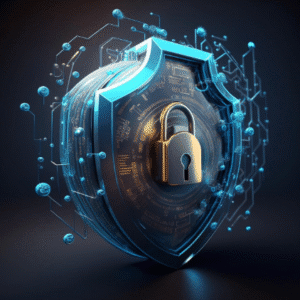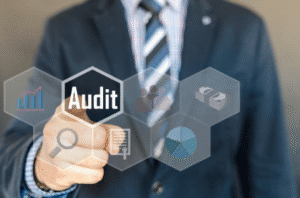Step-by-Step Guide to Find a CMMC-Approved C3PAO for Level 2 Certification
The Cybersecurity Maturity Model Certification (CMMC) has undergone several upgrades since the program was first unveiled as CMMC 1.0 on January 31, 2020. These reforms culminated in the publication of the CMMC 2.0 final rule in the Federal Register on October 15, 2024.
One of the most striking changes in the latest CMMC iteration was the introduction of mandatory independent cybersecurity audits for organizations seeking assessment (OSAs) for CMMC Level 2. According to the United States Department of Defense (DoD), such evaluations must be undertaken triennially by authorized agencies known as CMMC third-party assessor organizations (C3PAOs).
Unfortunately, there’s only a handful of accredited C3PAOs against thousands of OSAs.
The sheer scarcity of authorized assessors underscores the imperative of implementing the CMMC framework as a matter of priority. But for many organizations, the most pressing challenge is finding a duly approved C3PAO.
Here’s a detailed guide on what to look for when scouting for a third-party assessor organization for your CMMC Level 2 certification.

Unpacking CMMC C3PAOs
CMMC third-party assessor organizations are independent agencies officially authorized to undertake cybersecurity audits on the DoD’s behalf.
An accredited C3PAO is directly involved in Level 2 cyber assessments, making them a crucial stakeholder in enforcing CMMC compliance across the Defense Industrial Base (DIB). They conduct cybersecurity evaluations for OSAs and OSCs (organizations seeking CMMC certification) and then report their findings to the CyberAB and designated DoD platforms, where they are reviewed for certification decisions.
It’s upon the defense body to evaluate each audit report and determine if a contractor meets Level 2 cybersecurity requirements.
More About CMMC Level 2
Level 2 is CMMC’s second maturity level.
Also known as “Advanced,” CMMC Level 2 seeks to detect and avert sophisticated cyber-attacks to the defense supply chain. That’s in contrast to Level 1, which mandates the implementation of basic cyber practices like access control.
CMMC Level 2 applies to all organizations that handle Controlled Unclassified Information (CUI).
CUI is one of the two primary information classes that the DoD seeks to safeguard through the CMMC framework. The other one is Federal Contract Information (FCI), which mostly affects organizations seeking CMMC Level 1 compliance.
CMMC Level 2 aligns with 110 cybersecurity controls spelled out in the National Institute of Standards and Technology (NIST) Special Publication (SP) 800-171. While there’s a provision for self-assessment for non-critical CUI, contractors seeking Level 2 certification are better off enlisting C3PAO assistance.
It’s also worth noting that CMMC Level 2 certifications are valid for three years. Besides the triennial assessments, existing contractors must submit annual attestations of continued compliance annually.
This provision ensures that every DIB is playing an active role in safeguarding the defense supply chain.
Level 2 also allows for limited usage of Plans of Actions & Milestones (POA&Ms) if cybersecurity audits uncover certain weaknesses. When a contractor invokes POA&Ms, they have up to 180 days to remediate the security gaps.
Tips for Selecting A CMMC C3PAO
1. Define the Role of C3PAOs
As mentioned, third-party assessor organizations are mandated to undertake cybersecurity assessments on the DoD’s behalf.
Each evaluation culminates in an extensive report detailing whether the audited company meets the stipulated CMMC standards.
If your business handles high-sensitive CUI, you’ll require triennial C3PAO-led assessments. That’s regardless if you also conduct self-audits annually.
2. Understand the Scope of C3PAOs
Conducting cybersecurity assessments for CMMC Level 2 businesses is C3PAO’s principal role. Contrary to popular misconceptions, these agencies don’t offer consulting or certification services to the organizations they evaluate. At least not within the same engagement.
Unlike standard assessors who may provide insights on how to bolster your cyber hygiene, the DoD’s standards on impartiality bar C3PAOs from providing such recommendations.
C3PAOs aren’t permitted to recommend a plan of action for sealing the security gaps uncovered during the audits either. They also cannot issue any advisory opinion that potentially impacts the outcome of their audit work.
Besides, the issuance of CMMC Level 2 certification is discretionary upon the DoD.
These checks are critical to ensure each evaluation meets the highest standards of objectivity.

3. Distinguish Between C3PAOs and 3PAOs
While the terms C3PAO and 3PAO may sound similar, they’re not interchangeable.
3PAOs stand for third-party assessment organizations. They’re agencies mandated to assess the safety of cloud service offerings (CSOs) and ensure such organizations meet the security requirements stipulated by the Federal Risk and Authorization Management Program (FedRAMP).
The principal difference between C3PAOs and 3PAOs is that the former specifically works on the DoD’s behalf while the latter may offer their services to other federal agencies. In fact, 3PAOs may cater to non-federal organizations altogether.
4. Check for Relevant Accreditations
Third-party assessor organizations are accredited by the official CMMC accreditation body – the Cybersecurity Accreditation Body (Cyber AB).
But don’t just scour the Cyber AB marketplace for the listed C3PAOs. Ensure the assessor you’re about to hire has formally been authorized to offer CMMC cybersecurity audits, rather than one still pending accreditation.
Proof of valid credentials confirms that a C3PAO possesses the relevant expertise, tools, and personnel to undertake objective and verifiable CMMC audits.
5. Establish the Personnel Size
CMMC Level 2 assessments are quite rigorous and require more than a single pair of hands. Therefore, don’t go looking for lone wolves.
Choose a C3PAO that maintains a team of auditors rather than one that works singlehandedly. The team should comprise a lead assessor that directs the audit process, an assistant assessor, and a quality assurance (QA) expert.
Besides these three critical personnel, a credible C3PAO assessor would also maintain highly responsive and professional customer support staff. That’s how you’ll contact the agency to place initial requests for assessments, get your pressing CMMC queries addressed, and keep up on scheduled audits.
6. Ensure Each Assessor Is Duly Credentialed
Some C3PAOs will claim to work with professional auditors when only the lead assessor is duly credentialed.
Due to the technicality of Level 2 CMMC certification, it’s best to validate that individual members of a C3PAO’s audit workforce possess relevant experiences to undertake the project.
Don’t just take the agency at their word. Instead, go ahead and ask for valid documentation.
Among the key requirements include;
- ISO 17020 compliance
- Active Data Universal Numbering System (DUNS) membership
- Evidence of passing a Foreign Ownership, Control, or Influence (FOCI) analysis
Possession of other industry-relevant certifications, such as the Certified Information Systems Security Professional (CISSP), is an added advantage.

7. Prioritize Longer Industry Duration
The severe shortage of CMMC Level 2 assessors may have you settle for a C3PAO that possesses all the above certifications but was only accredited a few days ago. While such auditors may boast impressive technical cybersecurity knowledge, it’s better to prioritize those who’ve been around for much longer.
A C3PAO that has been in active practice for at least five years will likely provide exceptional audits than a new industry entrant.
Better yet, select a C3PAO with proven experience auditing businesses in your niche. This enables the agency to implement a tailored approach, enhancing the credibility of their assessments.
Note that some organizations span multiple industries. An example is a firearms manufacturer that also develops weapons management software.
If your business transcends several niches, you’ll equally require a C3PAO with cross-industry experience.
8. Insist On Multi-Framework Experience
There are several cybersecurity frameworks besides CMMC. Many of these programs work synergistically with CMMC to safeguard the federal supply chain.
While your immediate focus is Level 2 certifications, it’s prudent to select a C3PAO experienced in other cybersecurity frameworks like NIST and FedRAMP®. Technical NIST experience is highly encouraged, as CMMC Level 2 aligns with 110 NIST 800-171 controls.
Be sure to ask critical questions on the interplay between other cybersecurity frameworks and CMMC Level 2. If a C3PAO cannot draw a convincing correlation, it’s better to look elsewhere.
9. Check Reviews and Referrals
Cyber AB accreditation may be an excellent starting point in terms of vouching for a C3PAO’s expertise. However, feedback from the assessor’s previous clients will provide a clearer view of their service delivery.
Sample online testimonials to understand the specific aspects of a C3PAO’s services that most reviewers liked or disliked. If the agency claims to have audited several businesses before, ask for a list of referrals and contact these entities.
Keep an open mind though, as each cybersecurity audit is a unique experience. You may need to rely on your instincts as you sift through online and offline recommendations.
10. Select Someone Familiar With Your Software Stack
Today’s contractors rely heavily on automation software. These tools enhance operational efficiency with various tasks, including data storage.
To reduce the CMMC Level 2 certification process, it’s best to hire a C3PAO that’s conversant with your software technology.
Familiarity with your stack enables the assessor to quickly identify security weaknesses unique to your systems and recommend tailored solutions.
11. Don’t Forget the Budget
CMMC certifications don’t come cheap. The average cost for Level 2 certifications is $100,000 – $150,000, although the actual fees will depend on your organization’s size and the scope of audits required.
Undertaking routine self-assessments is an ingenious way to manage C3PAO costs.
By sealing the security vulnerabilities uncovered during regular audits (and updating your cybersecurity policy documents accordingly), you can shorten C3PAO time and costs significantly.

Overcoming CMMC Level 2 Compliance Pitfalls with Professional Assessments
All companies seeking CMMC Level 2 certification must schedule C3PAO-led cybersecurity audits triennially. But due to the acute shortage of authorized C3PAOs, extreme caution is critical when scouting for the right assessor.
We hope you can keep the above pointers in your back pocket the next time you go shopping for a CMMC third-party assessor organization.
Remember, no two C3PAOs have identical expertise levels. The trick is to define your company’s unique requirements and then pick a reputable cybersecurity agency that promises to address those needs.

Recent Comments